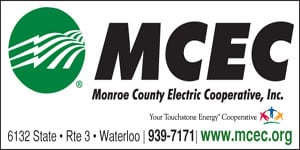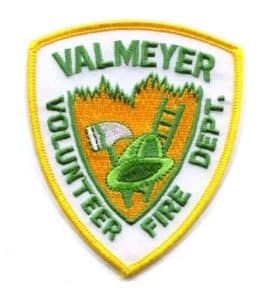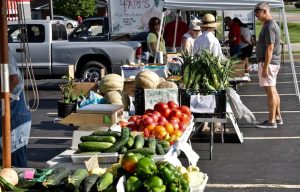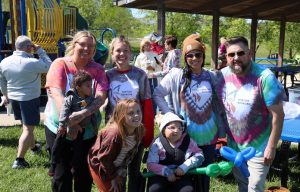CMS teacher to be spotlighted on PBS
For the past 22 years, Patrice Bain has been teaching at Columbia Middle School. For those 22 years, she’s been teaching social studies — currently sixth grade world history and eighth grade U.S. history.
And for 22 years, Bain has been teaching using strategies related to meta-cognition. Those strategies have made her a bit of a minor celebrity at the school and now, around the country.
“Meta-cognition means you know what you know and you know what you don’t know. It sounds really funny, but it’s vital to learning. If I just asked you a question right off the bat, say, ‘Spencer, who is Lady Murasaki Shikibu?’”
This writer had no idea who that was.
“See, you knew right away that you didn’t know. You didn’t have to fudge it. You absolutely knew that you did not know. That’s the way learning is.”
Bain starts the year off by letting her students know what they know, and that is meta-cognition.
“The strategies that I use are to help students. In fact, on the first day of school, all my students learn what meta-cognition is, so they know all year long that I’m going to help them learn what they already know and what they need to study,” Bain said.
These strategies have garnered Bain media attention.
“There is a wonderful writer by the name of Annie Murphy Paul who is a freelance journalist,” Bain said. “She was writing an article for ‘Scientific American,’ so she came out to the middle school last spring and observed my teaching and interviewed a couple students.”
That may have led to why a documentary film crew for the long-running PBS program Nova was recently in her classroom for the same reason.
“There was a big write-up in the ‘Scientific American’ in August last year,” Bain said. “So, I don’t know how Nova got my name. I got a phone call one day to see if they could interview me for this program.”
Regardless of how they found her, the Nova episode is about the future of education.
“This was a wonderful experience,” Bain said. “It was really fun for me since I’d never met a documentary film crew either. It was such a wonderful opportunity for the students. They were so excited and they can’t wait for this to come out to see who’s going to be in it.
“The actual filming, they spent a few days earlier with a couple cognitive scientists learning some of the research of how people learn, how students learn. Then I know they were going to meet with Sal Khan from Khan Academy and interview him. The working title is called ‘The Future School.’ It’s going to come out in September. It’s about how education is changing and going to rely more on research.”
Bain’s classroom strategies have to do with all aspects of meta-cognition.
“There is such a thing as false meta-cognition and that’s when students look over their notes and look over their notes,” Bain said. “In fact, one of the worst ways to study is to review your notes. That has been very researched. So, what happens is when students simply review their notes over and over and over again, they think they know it. But, what’s happened, is looking over the pages has become familiar.”
It could be said that Bain didn’t realize that she knew she was teaching meta-cognition. So, she didn’t know what she knew.
“I was very fortunate to meet a professor, a cognitive scientist at Washington University by the name of Dr. Mark McDaniel,” Bain said. “We were talking and he had been brought to Wash U to help research how people learn and how they remember things. We were talking and he was talking about writing this grant, and I was like, ‘Oh my goodness, that’s the way I teach.’ It was kind of serendipitous. So, he and Dr. Henry Roediger from Wash U, wrote a grant through the Department of Education, and we were able to work together on conducting research on how people learn. The results were fantastic.”
Bain said that Columbia Middle School was the only kindergarten through 12th grade school included in the grant. It expanded to Columbia High School for a few years as well.
With the Nova filmmakers in class for one day, Bain said the students enjoyed the experience as much as, if not more than, herself.
“What they did with the students is that we started each class with them introducing themselves and telling the kids what it’s like to be a documentary filmmaker,” Bain said. “They got to see the cameras and the sound. Then they stressed to the students, ‘Pretend we’re not here.’ They didn’t interview any of the student’s individually, but as I taught, they were going around the room filming what happens during a class.”
Bain stressed that she knows there are plenty of other “excellent” teachers in the Columbia School District.
“These excellent teachers are going to find out what works and they too have strategies,” Bain said. “I like to brag about how wonderful the teachers are in Columbia. You also can’t do these things without the backing of administration. (CMS Principal) Mr. Reeves just welcomed Nova in. On top of that, it was like the whole school was excited. The cafeteria staff had a nice welcome tray for the Nova crew.
The custodial staff made it so you almost needed sunglasses in the school; it always looks good. We were such a team, it was just really exciting.”








